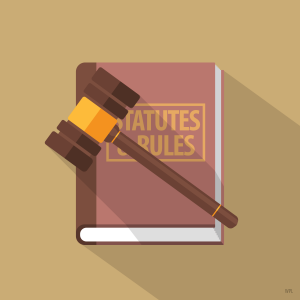 BY ZANA RAYBON, FBPE EXECUTIVE DIRECTOR & FEMC PRESIDENT
BY ZANA RAYBON, FBPE EXECUTIVE DIRECTOR & FEMC PRESIDENT
As you might expect, the Florida Board of Professional Engineers’ office receives a lot of inquiries whenever a catastrophic event happens.
If a building or structure collapses, we can count on a flurry of questions, and understandably so. Engineers recognize the importance of protecting the public’s health and safety, and are, therefore, concerned when such events cause injury or loss of life.
What a lot of engineers and the public don’t realize is the process the Board and its staff must go through when a complaint is filed against an engineer. One of the best places to start to understand our procedures is Section 471.038(3), Florida Statutes, which states:
The Florida Engineers Management Corporation is created to provide administrative, investigative, and prosecutorial services to the board in accordance with the provisions of Chapter 455 and this chapter.
This means the Legislature, when it established the Florida Engineers Management Corporation in 1998, gave Board staff the authority to investigate and prosecute any complaints received against licensed engineers.
Anyone can file a complaint against an engineer. We receive complaints from homeowners, business owners, building officials, and even other engineers. All one must do is go to our website and download the complaint form.
Once a complaint is filed with the Board, our investigator will open the complaint in our licensing system and begin to gather information to determine if the complaint is legally sufficient. In other words, is the accusation a violation of the Engineering Practice Act?
If the complaint is legally insufficient, it is closed.
If the complaint is legally sufficient, a full investigation is launched, which may include obtaining additional documentation and witness statements. This is where it may be important to know who the complainant is. While you can file a complaint anonymously, if the investigation requires additional information and we have no contact information for the complainant, we may have to close the file.
Once an Investigative Report is complete, the file will go the Board’s Probable Cause Panel (PCP), which meets every other month. The PCP’s three-member panel comprises one or two current Board members and one or two past Board members. The PCP will deliberate and determine whether to simply close the case with no further action, close the case with a Letter of Guidance, or issue an Administrative Complaint. The PCP meetings are closed to the public.
If an Administrative Complaint is authorized by the PCP, the respondent may opt to agree to a Settlement Stipulation, elect to convene an Informal Hearing (before the FBPE Board), or have the case go to the Division of Administrative Hearings to be heard before an administrative law judge.
Once the case has been finalized, it is considered inactive. Some of the inquiries we receive have to do with trying to obtain information about complaints that have been filed against a particular engineer. It is important to realize that FEMC has a slightly different requirement than some other regulatory boards. Section 471.038(7), F.S., addresses how active complaints are handled, stating:
For the purposes of this subsection, an investigation is considered active so long as the management corporation or any law enforcement or administrative agency is proceeding with reasonable dispatch and has a reasonable, good faith belief that it may lead to the filing of administrative, civil, or criminal proceedings. An investigation ceases to be active when the case is dismissed prior to a finding of probable cause and the board has not exercised its option to pursue the case or 10 days after the board makes a determination regarding probable cause. All information, records, and transcriptions regarding a complaint that has been determined to be legally sufficient to state a claim within the jurisdiction of the board become available to the public when the investigation ceases to be active. (Emphasis added)
So, when we receive inquiries from the public, media, or other engineers, we are not able to provide any information on an active investigation pursuant to Florida law. Once the case is dismissed or 10 days after probable cause is found, we can then make the investigation public.
It is also important to note that our website contains the latest disciplinary actions by the Board, for those that are interested.
Remember, we are always available to answer any questions you may have about the Boards’ disciplinary process or how to file a complaint. Just don’t ask for information about an ongoing investigation.

